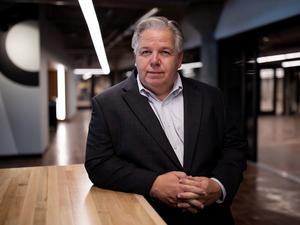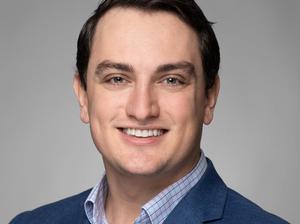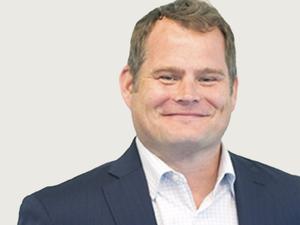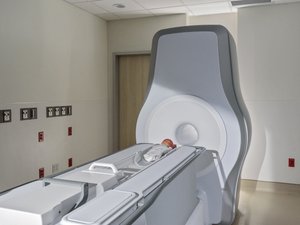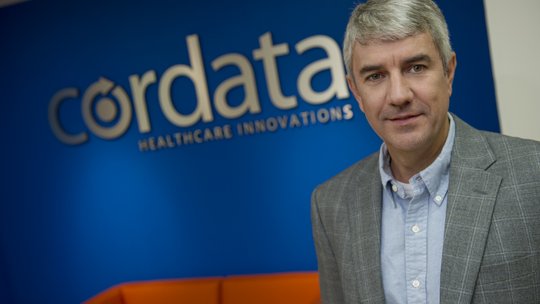
Software startup Cordata Healthcare Innovations has finalized an acquisition that expands its service offerings, but president and CEO Gary Winzenread said it’s not a valuation play for the 9-year-old Sycamore Township-based company.
It’s about fit.
Cordata, a software-as-a-service, or SaaS, provider that helps coordinate treatment and community resources for children in foster care, those struggling with addiction or mental illness and patients with complex and chronic diseases, acquired MedReportGuard, an Oakland, Calif.-based platform.
Terms of the deal, announced in June, were not disclosed. The move comes as the company looks to raise a significant Series B round.
The acquisition allows Cordata to extend its impact on highest-risk populations. The company got its start serving patients with chronic medical problems – then quickly got pulled into the opioid epidemic.
A commercial licensing agreement signed with Cincinnati Children’s in 2021 added a solution that coordinates between health care providers and child welfare (when children are moved around in a foster care system, there's often no connection to their medical or maltreatment history).
MedReportGuard’s focus is on survivors of interpersonal violence. That involves the use of physical or psychological force, including child abuse or neglect, elder abuse or physical abuse by an intimate partner.
“Lots of people merge companies because they want to take a dominant position from a market share perspective. We look at this as another population where outcomes are terrible and we can make an impact,” he told me. “Our souls align. The soul of their company and the soul of our company are the same.”
MedReportGuard, founded in 2013, works to address gaps in providing interventions: It connects patients to services; streamlines mandatory reporting and the medical examination processes; and fosters collaboration between health care providers, law enforcement, social services and community services.
Winzenread said it’s about making active connections. When people are passively referred to treatment they often don’t go. “The same thing happens with opioid (patients),” he said.
A multiyear study found victims supported by MedReportGuard solutions were nearly four times more likely to connect with advocacy services. The biggest impact was seen in minority populations.
Another study said this type of warm handoff led to an 11-fold increase in services received.
“This is what we believe in,” Winzenread said. “For these populations that have terrible health outcomes, with social determinants that are working against their ability to access care, that outreach and the connection to an advocate is critical. We're one of few companies nationally that's really down in the neighborhoods.”
As part of the transition, MedReportGuard founder Hillary Larkin and CEO Adrian Berg join the Cordata team.
Winzenread said MedReportGuard was doing about a quarter of a million dollars in yearly revenue. He expects to double that number in the next quarter or so.
MedReportGuard is currently accessible in 12 California counties and is making progress toward becoming more widely available.
The acquisition will accelerate expansion and will make the solution available across the country, MedReportGuard said. The deal also gives Cordata active contracts in at least 11 states and counting.
"By uniting our efforts, we can amplify our impact and accelerate the progress made to support hard-to-reach, underserved populations that face resource gaps and adverse outcomes,” Berg said in a release.
It’s not likely Cordata will make any further acquisitions. If any changes are made, it would be to add expertise, Winzenread said.
“We're a long way from a completed story for sure, but this is who we are now," he said.
The startup is actively raising a Series B fund to help accelerate growth. It last raised a Series A in 2016 led by Chicago-based First Health Capital Partners. Past investors also include Avondale-based CincyTech and Allos Ventures, among others.
A tight venture capital market means the process has taken longer than expected. But the company is well positioned, he said. “We're seeing nice steady growth."
Cordata is doing just a little over $4 million in revenue with a handful of “good sized deals” pending, Winzenread said.
“Over the past several years, Cordata has sharpened its focus,” he added. “We're confident the right technology solutions and enabling teams on-the-ground will result in quality care for all individuals, regardless of their background or life circumstances.”
